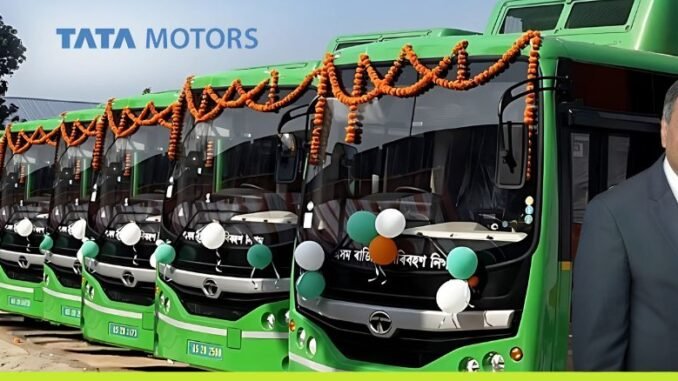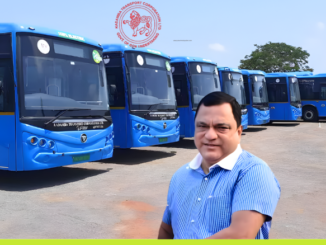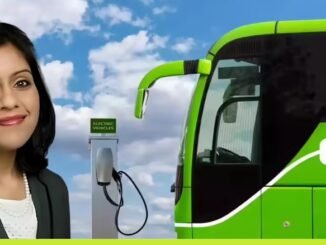
Powering South India’s Green Transport Transition
In a significant boost to sustainable public transport, Tata Motors has signed a Memorandum of Understanding (MoU) with Green Energy Mobility Solutions (GEMS) to supply 100 Magna electric intercity buses. The agreement reflects a growing push toward decarbonizing long-distance mobility in India.
GEMS: UBS’s EV-First Subsidiary
GEMS is the electric vehicle division of Universal Bus Services (UBS), a premium intercity travel brand operating across South India. Through this partnership, GEMS is set to modernize its fleet by integrating clean, zero-emission transport solutions designed for long-range travel.
Key Highlights of the Agreement
The MoU was signed during the Passenger Vehicle Expo 2.0 held in Chennai and includes:
- Delivery of 100 Tata Magna electric intercity buses
- Each vehicle offers a range of up to 300 km per charge
- 44-seater configuration optimized for passenger comfort
- Built specifically for intercity deployment in Southern India
Tata Magna EV Coach: Built for the Long Haul
The Tata Magna electric coach is a purpose-built solution for intercity operations. With extended range capabilities, high seating capacity, and reduced operating costs, it presents a viable electric alternative to traditional diesel buses.
Product Features:
- Up to 300 km single-charge range
- Spacious 44-seat layout
- Zero tailpipe emissions
- Lower total cost of ownership for operators
Driving India’s EV Adoption in Intercity Travel
This partnership marks a turning point for public EV adoption beyond urban transit. As India continues to invest in green mobility infrastructure, the Tata-GEMS collaboration signals industry readiness to electrify longer and more demanding travel segments.
Strategic Impacts:
- Expands Tata Motors’ electric commercial vehicle portfolio
- Accelerates UBS and GEMS’ commitment to clean transportation
- Serves as a reference point for intercity EV fleet transformation
Looking Ahead
The rollout of 100 Tata Magna EV buses across Southern India is expected to enhance travel experiences, cut emissions, and reduce operational costs. This agreement is a significant stride toward building a clean, connected, and passenger-first transport ecosystem.





